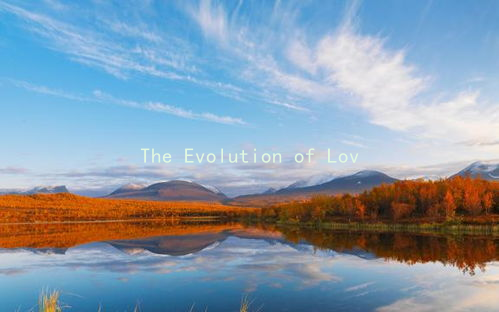The Evolution of Love: Applying Scientific Theories to Modern Dating Practices
The quest for love has always been an integral part of the human experience, but the way we approach dating has transformed dramatically over the years. With the rise of technology and the proliferation of research in psychology and sociology, we can now apply scientific theories to enhance our dating practices and improve our chances of finding a meaningful connection.
One prominent theory that sheds light on modern dating is the Attachment Theory. Developed by John Bowlby and later expanded by Mary Ainsworth, this theory suggests that the bonds we form in our early childhood relationships with caregivers shape our future romantic relationships. Understanding your attachment style—be it secure, anxious, or avoidant—can help individuals navigate the complexities of dating. For example, someone with an anxious attachment style may crave reassurance and closeness, while an avoidant individual might prioritize independence. Recognizing these patterns can facilitate healthier interactions, as it encourages open communication about needs and boundaries.
Another scientific framework that informs dating is Social Exchange Theory. This theory posits that relationships are formed and maintained based on a cost-benefit analysis. Partners seek to maximize rewards—such as love, support, and companionship—while minimizing costs, such as stress or unfulfilled expectations. In practice, this means being mindful of the dynamics in a relationship and ensuring that both partners feel valued and appreciated. Couples should engage in discussions about their expectations and contributions, fostering a balanced partnership where both individuals benefit.
The Matching Hypothesis, rooted in sociology, offers another insightful perspective on dating. This hypothesis suggests that people are attracted to others who are similar to themselves in various aspects, including physical attractiveness, socio-economic status, and values. In modern dating contexts, particularly with online platforms, this theory underscores the importance of authenticity in profiles. By presenting an accurate representation of oneself, individuals increase the likelihood of finding matches who genuinely resonate with them, thus enhancing the potential for fulfilling relationships.

The Sternberg’s Triangular Theory of Love introduces another layer of complexity by identifying three key components of love: intimacy, passion, and commitment. Understanding how these elements interact can help individuals assess and nurture their relationships. For instance, a relationship that is rich in intimacy and commitment but lacks passion may benefit from intentional actions to rekindle romance, such as planning surprise date nights or exploring new activities together. Conversely, recognizing a relationship that is predominantly characterized by passion without intimacy or commitment can aid individuals in making informed choices about their future.
Moreover, modern dating often involves navigating the psychological impacts of rejection and vulnerability. Brené Brown’s research on vulnerability highlights the need for people to embrace uncertainty and risk in their pursuit of love. This perspective encourages individuals to engage in open conversations about their feelings, fears, and desires. By fostering an environment of vulnerability, partners can build deeper connections and foster trust, which is essential for long-lasting relationships.
Finally, while scientific theories provide valuable insights into dating, the importance of emotional intelligence cannot be overstated. Being aware of one’s emotions and those of others can drastically enhance communication and conflict resolution in relationships. Techniques such as active listening, empathy, and practicing mindfulness can create a safe space for partners to express themselves, leading to a more profound understanding of each other.
In conclusion, the evolution of love and dating practices is significantly influenced by scientific theories that illuminate the intricacies of human relationships. By applying frameworks such as attachment theory, social exchange theory, and others to modern dating, individuals can foster healthier connections and cultivate love that is both fulfilling and enduring. Embracing these insights not only equips people with the tools needed for romantic success but also contributes to a deeper understanding of themselves and their partners in the journey of love.





